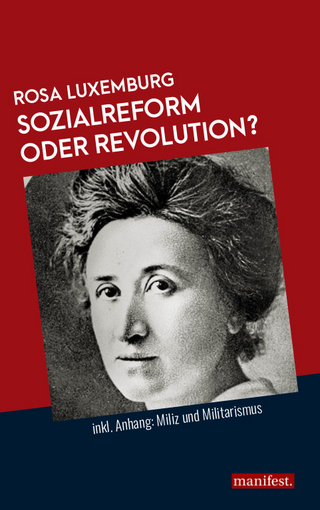
A Model Discipline
Oxford University Press Inc (Verlag)
978-0-19-538219-8 (ISBN)
David Primo and Kevin Clarke tackle these central questions in this novel work of methodology. They argue that the lack of a suitable justification for model testing is not the only reason to revisit the role of models in political science. Most importantly, they contend that models should be seen as 'objects' and thus neither true nor false. Rather, they should be evaluated in the same fashion as models are evaluated in the physical sciences--good models are useful for particular purposes. Nothing more, nothing less. Divided into two parts, the book first establishes that no social scientific endeavor is philosophy-free. The second part focuses on different types of models, and closes with a framework for integrating theoretical and statistical models.
Kevin A. Clarke is Associate Professor of Political Science at the University of Rochester. His research focuses on political methodology and model discrimination tests. Clarke's articles have appeared in American Political Science Review, American Journal of Political Science, Political Analysis, and many other journals. David M. Primo is Associate Professor of Political Science at the University of Rochester. His research focuses on American politics and political economy. Primo has authored or co-authored two books, The Plane Truth and Transportation Policy and Rules and Restraint, and many journal articles.
Preface ; 1 A Model Discipline ; 1.1 The Model in Political Science ; 1.2 Metaphors and Analogies, Fables and Fictions ; 1.3 The broad themes of the book ; 1.3.1 Science is not what we think it is ; 1.3.2 Current practice is not "philosophy-free" ; 1.3.3 Models are objects ; 1.3.4 Models are not tested with data ; 1.3.5 Explanation ; 1.4 Plan of the Book ; 1.5 What this Book is Not ; 2 The Science in Political Science ; 2.1 Introduction ; 2.2 What Political Scientists Say They Are Doing ; 2.3 Hypothetico-Deductivism ; 2.4 Problems with H-D ; 2.4.1 Deductions are Truth-Preserving ; 2.4.2 Data Can't Speak for Themselves ; 2.4.3 Other Problems with H-D ; 2.5 How We Got Here ; 2.5.1 Logical Positivism ; 2.5.2 Pathologies of Rational Choice ; 2.5.3 Methods and Models ; 2.5.4 The Empirical Implications of Theoretical Models ; 2.6 Conclusion ; 3 What is a Model? ; 3.1 Introduction ; 3.2 Models as Maps ; 3.3 A Few Examples ; 3.4 The Received View of Scientific Theories ; 3.5 The Semantic Conception of Scientific Theories ; 3.6 The Model-Based View of Scientific Theories ; 3.7 Models and Theories ; 3.8 Conclusion ; 4 Theoretical Models ; 4.1 Introduction ; 4.2 Aspects of Theoretical Models ; 4.3 The Purposes of Models ; 4.3.1 Foundational Models ; 4.3.2 Organizational Models ; 4.3.3 Exploratory Models ; 4.3.4 Predictive Models ; 4.4 Judging a Theoretical Model ; 4.4.1 Prediction is the Wrong Standard (Usually) ; 4.4.2 The Illusion of Precise Standards ; 4.4.3 Dimensions of Usefulness ; 4.5 Conclusion ; 5 Empirical Models ; 5.1 Introduction ; 5.2 What is an Empirical Model? ; 5.2.1 A Model-Based Understanding ; 5.3 The Purposes of Empirical Models ; 5.4 The Illogic of Theory Testing ; 5.4.1 Falsificationism ; 5.4.2 Verificationism ; 5.4.3 Bayesian Confirmation ; 5.5 The Other Uses of Empirical Modeling ; 5.6 Conclusion ; 6 Explanation ; 6.1 Introduction ; 6.2 Existing justifications ; 6.3 Explanation ; 6.3.1 What constitutes an explanation? ; 6.3.2 Explanation in Political Science ; 6.4 Models as explanations ; 6.5 Choosing among explanations ; 6.5.1 Comparative Model Testing ; 6.5.2 Is choosing necessary? ; 6.6 Conclusion ; 7 Conclusion ; 7.1 Introduction ; 7.2 Review of the argument ; 7.3 Issues and counterarguments ; Bibliography
| Erscheint lt. Verlag | 23.2.2012 |
|---|---|
| Zusatzinfo | 6 b/w illus. |
| Verlagsort | New York |
| Sprache | englisch |
| Maße | 161 x 236 mm |
| Gewicht | 424 g |
| Themenwelt | Schulbuch / Wörterbuch ► Lexikon / Chroniken |
| Sozialwissenschaften ► Politik / Verwaltung ► Politische Theorie | |
| Sozialwissenschaften ► Soziologie ► Empirische Sozialforschung | |
| ISBN-10 | 0-19-538219-6 / 0195382196 |
| ISBN-13 | 978-0-19-538219-8 / 9780195382198 |
| Zustand | Neuware |
| Haben Sie eine Frage zum Produkt? |
aus dem Bereich


